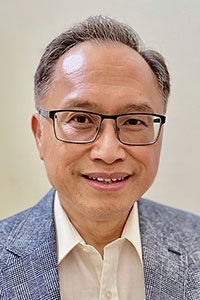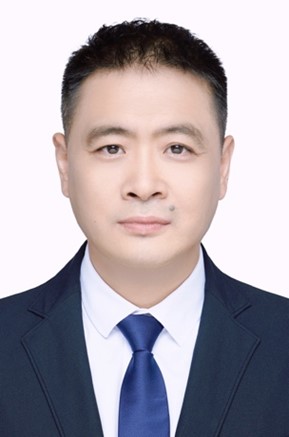1st Keynote Speaker

Prof. Nirwan Ansari
IEEE Life Fellow and Fellow of NAI
New Jersey Institute of Technology, USA
Title: Cloud–Edge Collaboration: Delivering the Right Compute, at the Right Place and the Right Time
Abstract: AI workloads, pervasive sensors, and 5G/6G are transforming how we distribute computation. This keynote introduces a decision framework that balances latency, privacy, cost, carbon impact, and resilience in choosing between cloud, edge, or hybrid deployments. A reference architecture for elastic offloading and near-real-time orchestration is illustrated through three cases: MRCoach sports training, MRHealth clinical assistance, and an edge–cloud XR authentication prototype. The talk concludes with practical patterns, pitfalls, and a readiness checklist to guide when—and how—to compute in the cloud, at the edge, or both.
Bio: Nirwan Ansari, Distinguished Professor of Electrical and Computer Engineering at the New Jersey Institute of Technology (NJIT), holds a Ph.D. from Purdue University, an MSEE from the University of Michigan, and a BSEE (summa cum laude with a perfect GPA) from NJIT. He is a Life Fellow of the Institute of Electrical and Electronics Engineers (IEEE) and a Fellow of the National Academy of Inventors (NAI).
He authored Green Mobile Networks: A Networking Perspective (Wiley-IEEE, 2017) with T. Han, and co-authored two other books. He has also (co-)authored over 750 technical publications, over half published in widely cited journals and magazines. He has served as a guest editor for numerous special issues on various emerging topics in communications and networking. Currently, he serves as the Editor-in-Chief of IEEE Wireless Communications and has been on the editorial/advisory board of over ten journals. His current research focuses on green communications and networking, edge computing, drone-assisted networking, and various aspects of broadband networks.
He was elected to serve as a member-at-large on the IEEE Communications Society (ComSoc) Board of Governors. He has served as the Director of the ComSoc Educational Services Board, chaired various technical and steering committees within ComSoc, and served on many committees, such as the IEEE Fellow Committee. He has actively participated in organizing numerous IEEE International Conferences/Symposia/Workshops. Among his recognitions are several excellence in teaching awards, multiple best paper awards, the NCE Excellence in Research Award, several ComSoc TC technical recognition awards, the NJ Inventors Hall of Fame Inventor of the Year Award, the Thomas Alva Edison Patent Award, the Purdue University Outstanding Electrical and Computer Engineering Award, the NCE 100 Medal, the NJIT Excellence in Research Prize and Medal, and designation as a COMSOC Distinguished Lecturer. He has also been granted more than 40 U.S. patents.
2nd Keynote Speaker

Laurence Tianruo Yang
ZhengzhouFCAE, FEIC, MAE, MRAE, MNAAI, FIEEE, FIET
Zhengzhou University, China
Title: Cyber-Physical-Social Intelligence
Abstract: The booming growth and rapid development in embedded systems, wireless communications, sensing techniques and emerging support for cloud computing and social networks have enabled researchers and practitioners to create a wide variety of Cyber-Physical-Social Systems (CPSS) that reason intelligently, act autonomously, and respond to the users’ needs in a context and situation-aware manner, namely Cyber-Physical-Social Intelligence. It is the integration of computation, communication and control with the physical world, human knowledge and sociocultural elements. It is a novel emerging computing paradigm and has attracted wide concerns from both industry and academia in recent years.
This talk will present our latest research on Cyber-Physical-Social Intelligence. Corresponding case studies in some typical applications will be shown to demonstrate the feasibility and flexibility.
Bio: Laurence T. Yang got his BE in Computer Science and Technology and BSc in Applied Physics both from Tsinghua University, China and Ph.D in Computer Science from University of Victoria, Canada. He is the Academic Vice-President and Dean of School of Computer Science and Artificial Intelligence, Zhengzhou University, China. His research includes Cyber-Physical-Social Intelligence. He has published 600+ papers in the above area on top IEEE/ACM Transactions with total citations of 46000+ and H-index of 108 including 8 and 44 papers as top 0.1% and top 1% highly cited ESI papers, respectively.
His recent honors and awards include the member of US National Academy of Artificial Intelligence (2025), a foreign member of Russian Academy of Engineering (2024) and a member of Academia Europaea, the Academy of Europe (2021), the John B. Stirling Medal (2021) from Engineering Institute of Canada, IEEE Sensor Council Technical Achievement Award (2020), IEEE Canada C. C. Gotlieb Computer Medal (2020), Clarivate Analytics (Web of Science Group) Highly Cited Researcher (2019, 2020, 2022, 2023, 2024, 2025), Fellow of Institution of Engineering and Technology (2020), Fellow of Institute of Electrical and Electronics Engineers (2020), Fellow of Engineering Institute of Canada (2019), Fellow of Canadian Academy of Engineering (2017), etc.
3rd Keynote Speaker

Prof. Zhao Li
Zhejiang University & Hangzhou Yugu Tech, China
Title: A Graph Powered Large Scale Fraud Detection System
Abstract:
Graph-powered fraud detection is a common issue in various areas, such as e-commerce, banking, insurance and social networks, where data can be naturally formulated as graph structure. Especially in e-commerce, due to its large scale and enormous amount of real-time transactions over millions of merchandises, fraud detection has become an important and serious problem. The challenges lie in three aspects: sparse fraud samples, complex features in online transactions and extra large scale of e-commerce data. To deal with above issues, in this paper, we propose an efficient graph-powered large-scale fraud detection framework. Concretely, we first present a heterogeneous label propagation algorithm to recall more potentially fraudulent samples for further model training; then, we design a novel multi-view heterogeneous graph neural network model to obtain more accurate fraud predictions; finally, a fraud pattern analysis approach is presented to discover hidden fraud groups. In addition, in order to improve the efficiency and scalability of our proposed fraud detection framework, we present a large-scale fraud detection system deployed on a general graph computing engine. We conduct experiments on two real-world datasets. Results show that the proposed graph-powered fraud detection framework achieves high accuracy and superior scalability on large-scale graph data.
Bio:
Dr. Zhao Li obtained the Ph.D. from the University of Vermont (2012) and is currently serving as an adjunct professor at Zhejiang University. He has published over 60 top-tier papers (as first/corresponding author) , with multiple Best Paper Awards, including an IEEE-CCF honor. Former director of the Alibaba-ZJU Joint Research Center and chief scientist at TCL America. He is the distinguished member of CCF, and the Asia-Pacific AI Association. His accolades span the IEEE Open Source Science Award (China’s first), China Computer Federation Distinguished Speaker Award, UN ITU Innovate for Impact Award, and recognition among Stanford’s “Top 2% of Scientists.” His research interest lies in reinforcement learning, big-data-driven security, and large-scale graph computing.
